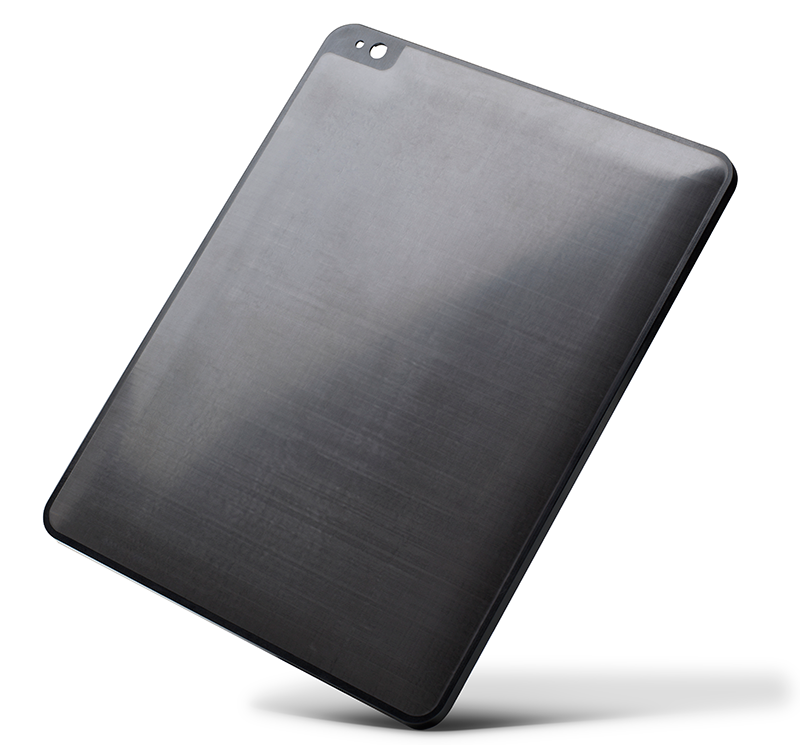
News Details
Position:
Home>
News Details
SABIC previews Digital Composites Manufacturing system
Category: News
Date: 2018-03-10
Click: 2160
Collection:
"Our joint ambition is to strengthen the competitiveness of Airborne and SABIC by increasing flexibility, productivity and speed of innovation.
Thermoplastic composites are prized for their lightweight and exceptional strength, but according to leading composites producer SABIC (Saudi Basic Industries Corporation), mainstream adoption has lagged due to shortcomings in existing production processes, which are slow, costly, and labour and waste intensive.
To drive broader use of these advanced materials across multiple industries, SABIC, has invested in the composites industry’s first automated, digital system for the large-scale manufacturing of laminates made with its continuous fiber reinforced thermoplastic composite (CFRTC) tapes.
 Exhibiting at JEC World 2018 (stand L84, hall 5) this week, Sabic is previewing its Digital Composites Manufacturing system, an automated and digitized production line developed with Airborne and powered by Siemens. The new line, scheduled to go live in early 2019, aims to offer customization capabilities, using sophisticated technologies and processes that can drive down cycle times and system costs.
Exhibiting at JEC World 2018 (stand L84, hall 5) this week, Sabic is previewing its Digital Composites Manufacturing system, an automated and digitized production line developed with Airborne and powered by Siemens. The new line, scheduled to go live in early 2019, aims to offer customization capabilities, using sophisticated technologies and processes that can drive down cycle times and system costs.

At JEC World SABIC, Airborne and Siemens are presenting the Digital Composites Manufacturing line together at the Siemens stand G51, in Hall 6, on Tuesday, March 6 at 2 p.m., Wednesday, March 7 at 10 a.m. and Thursday, March 8, at 10 a.m.
“Rapid mass production of high-quality, fully customized thermoplastic composite parts at an affordable cost will soon be a reality,” said Gino Francato, global business leader, Composites, SABIC. “The upcoming launch of our Digital Composites Manufacturing line – the composites industry’s first large-scale production solution – is a major step toward that goal.”
Arno van Mourik, chief executive officer of Airborne, added: “With Airborne’s ingenuity and more than 20 years of experience in composites manufacturing processes, we are developing this line using Industry 4.0 automation and data exchange principles. This will enable SABIC’s customers to develop, prototype and produce unique, differentiated products that leverage the strength and light weight of SABIC’s continuous fiber reinforced thermoplastic composites.”
Fast and fully automated
The new large-scale manufacturing line, built by Airborne at its facility in The Netherlands using Siemens factory automation and digital control software, can produce multiple thermoplastic composite laminates every minute, achieving over a million parts annually.
Watch SABIC's Innovations of Scale video...
"To achieve such fast and reliable production performance for composites, intensive collaboration between Airborne, SABIC and Siemens is a must,” said John O’Connor, director of Product & Market Strategy, Specialized Engineering Software at Siemens. "Our joint ambition is to strengthen the competitiveness of Airborne and SABIC by increasing flexibility, productivity and speed of innovation. To this end, digitization is key when it comes to a breakthrough in the production process.”
For ultimate flexibility, the system can be remotely operated, and can run multiple laminate sizes simultaneously. Machine learning concepts will be used to fine-tune quality and adaptive process control will allow settings to be modified on the fly.
The Digital Composites Manufacturing line will be supported by predictive engineering capabilities at SABIC’s Center of Excellence in The Netherlands. Predictive engineering for UDMAX tapes is based on computer-aided engineering (CAE) software that uses material data and material modelling (such as elastic properties and damage initiation/rupture behaviour) to create simulations of how the composite material will perform in an application during its use, taking into account the influence of manufacturing processes.
Breakthrough for thermoplastic composites in consumer electronics
The Digital Composites Manufacturing line will premiere its first-generation technology to meet immediate needs in the consumer electronics industry.
The Digital Composites Manufacturing line will be able to mass-produce lightweight, high modulus and low warpage, custom-engineered laminates as per thickness, dimensions, lay-up preferences and desired performance. Made with carbon-fiber reinforced polycarbonate composite, these SABIC laminates will be used for laptop covers.
The Digital Composites Manufacturing line will be able to mass-produce lightweight, high modulus and low warpage, custom-engineered laminates as per thickness, dimensions, lay-up preferences and desired performance. Made with carbon-fiber reinforced polycarbonate composite, these SABIC laminates will be used for laptop covers.
“By responding to our customers’ needs for increasingly lighter, yet stronger and thinner products in large scale, we will soon be enabling our customers to leverage the advantages of SABIC’s laminates to achieve not only weight-out, but also design flexibility and shorter production cycle times for device covers – more effectively than ever before,” concluded Francato.
Previous: No information found
Say something
Submit
Latest comment

